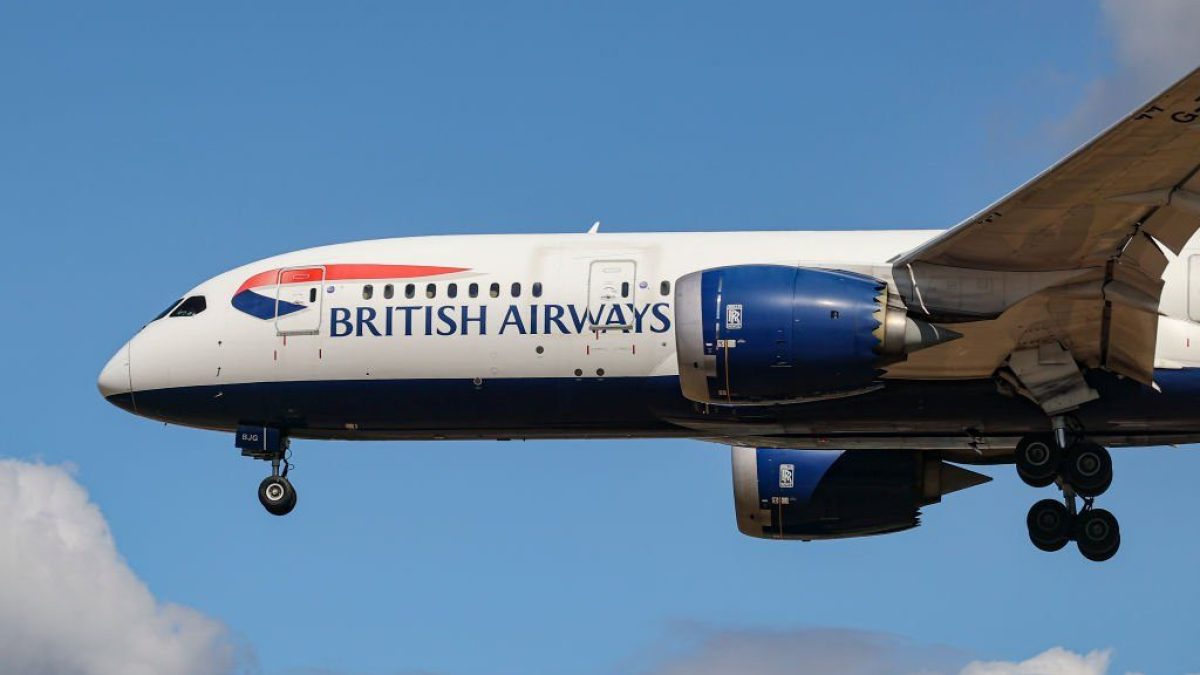Following a recent suspension of flights from Gatwick to New York for a five-month period, British Airways has announced further cuts to its transatlantic schedule.
The UK flag carrier has confirmed it will remove all of its daily flights from Heathrow to Dallas/Fort Worth between March and October 2025 and suspend a second daily flight from Heathrow to Miami. The Miami route is a particular blow for BA, which announced an increased frequency to the city as recently as September.
The move comes after it was revealed that the airline won’t run any of its daily Gatwick to New York JFK flights between 12 December, 2024 and the end of March 2025.
That route was suspended alongside the push-back of the resumption of Heathrow to Kuala Lumpur flights, from November 2024 to April 2025, and reduction of Heathrow to Doha flights in Qatar, from twice daily to one per day.
British Airways is experiencing delays to delivery of engine parts, which is also affecting several other airlines operating specific planes. The issue is ongoing and unlikely to be resolved quickly.
“We’re disappointed that we’ve had to make further changes to our schedule as we continue to experience delays to the delivery of engines and parts from Rolls-Royce – particularly in relation to the Rolls-Royce Trent 1000 engines fitted to our 787 aircraft,” a spokesperson for BA told i.
It says it is working closely with Rolls-Royce to “ensure the company is aware of the impact its issues are having on our schedule and customers”, adding that “we’ve taken this action because we do not believe the issue will be solved quickly, and we want to offer our customers the certainty they deserve for their travel plans.
“We are able to offer the vast majority [of affected passengers] a flight the same day with British Airways or one of our partner airlines,” the airline says.
Partner airline American will pick up the slack on the Miami route, restarting a second daily flight to Heathrow.
The engine problems and other airlines affected
Rolls-Royce claims that its Trent 1000 engines can improve the fuel efficiency of British Airways’ 787 Dreamliner by around 20 per cent.
However, their delivery of these engines and their component parts has been beset with problems, affecting several airlines around the world. Rolls-Royce says continuing supply-chain issues are causing the delays.
“The issues stem from shortages of raw materials required for manufacturing the Trent 1000 engine, as well as the materials needed for engine spares,” Bernard Lavelle, principal aviation consultant at BL Aviation Consulting explains. “In addition, previous checks have found that the engines need to be changed more often than originally thought due to corrosion and blade issues so this has also added to the demand for new engines and spare parts.”
BA has 41 Boeing 787 Dreamliners, of which six are currently grounded, according to the CAPA fleet database. The Boeing 787 has two engine options, either the General Electric GENX or the Rolls-Royce Trent 1000.
The GE engine has had supply chain issues as well. Kenya Airways grounded two of its nine Boeing 787s earlier this year.
“Virgin Atlantic has 17 Boeing 787 Dreamliners and they have had similar issues in the past few years, but they do not seem to have the same issues currently,” Lavelle adds.
Both Gulf Air and Air New Zealand have had similar issues with the Trent 1000 engine. Rolls-Royce has said that delays will continue until 2026.

What Rolls-Royce and BA are saying about the issues
Currently, BA operates up to nine daily services from Gatwick to JFK. Its eight daily flights departing from Heathrow won’t be affected.
Although plenty of other airlines, including Virgin Atlantic, Icelandair, Delta, American, KLM and Lufthansa, operate on the busy London to New York route, it’s expected that the grounding of the BA Gatwick flights will cause price fluctuations, particularly at peak times of year such as Christmas.
Rolls-Royce has said it will work with all affected airlines to minimise the impact of the engine shortage: “We take the industry-wide issue that the aerospace supply chain is currently dealing with, extremely seriously,” the manufacturer said in a statement recently.
“We’ve already introduced measures that allow us to respond more quickly to issues, such as integrating our Procurement and Supplier Management teams, sharing our own raw material stocks to tackle shortages, and hiring people to work in supplier organisations; one of our most impacted suppliers currently has almost 50 Rolls-Royce supply chain staff dedicated to driving their recovery.”
Further problems for BA
In addition to the Trent engine problems, British Airways has issues with other parts of its fleet.
“BA has 12 A380 superjumbos and these aircraft also have had issues. Some analysts have put this down to the fact that the aircraft were put into storage during the pandemic; re-introducing this fleet has proved more challenging than envisaged,” Lavelle explains. “In addition, there has been a shortage of BA A380 pilots and aircraft spares have also been a problem.”
Despite BA owning plenty of A380s, it’s not as simple as replacing routes which would typically use 787s.
Not only do A380s carry up to 469 passengers – more than 787s’ maximum capacity of 256 – but moving aircraft around the fleet would still result in cancellations and more disruption.
“BA’s use of the A380s is not a permanent solution to any capacity gap left by the 787 due to their size mismatch and the fact that only certain airports are able to accommodate the A380,” Ian Petchenik, director of communications at Flightradar24, tells i.
“This is why BA is having to cancel or delay operations on some routes and reduce frequencies on other routes – the B787 issues mean there are not enough aircraft to support BA’s proposed route network,” Lavelle adds.
“Airbus aircraft have also been affected,” Lavelle explains. “The A220 and A320/A321 aircraft, using new Pratt and Whitney GTF engines, have also had corrosion issues which have led airlines such as JetBlue, Air Baltic and Wizz Air to ground aircraft while they wait for engine repairs.”


